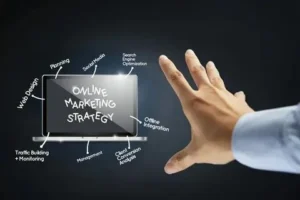In the world of business and technology, where rapid change is the only constant, organizations must continually evolve to stay relevant. A groundbreaking concept that is transforming the landscape of industry and innovation is Evırı. Derived from the term “evolve,” Evırı encapsulates the principles of continuous adaptation and iterative improvement, driving businesses towards sustained success in an ever-changing environment. This comprehensive exploration delves into the essence of Evırı, its implications across various industries, and its potential to redefine the future of organizational development.
Understanding Evırı: The Philosophy and Mechanics
The Philosophical Foundation
At its core, Evırı is inspired by the natural processes of evolution and adaptation. Just as species evolve through natural selection to better fit their environments, businesses using the Evırı approach continually adapt to meet the shifting landscapes of market dynamics, consumer preferences, and technological advancements. This philosophy advocates for an ongoing, iterative process of learning, adapting, and evolving, rather than periodic leaps from one fixed state to another.
Mechanisms of Evırı
Evırı operates on several key mechanisms:
- Feedback Loops: Constant feedback is crucial. This involves gathering and analyzing data from various touchpoints to understand effectiveness and areas needing improvement.
- Incremental Improvements: Unlike traditional models that aim for large, disruptive innovations, it focuses on small, continuous changes that cumulatively lead to significant improvements over time.
- Cross-Functional Teams: It encourages collaboration across different departments and disciplines, fostering a holistic approach to innovation where diverse perspectives drive problem-solving.
- Flexible Strategies: Adaptation requires flexibility. Strategies under Evıri are designed to be dynamic, allowing for quick pivots and adjustments in response to new information or market changes.
Applications of Evırı Across Industries
The versatility of it, means it can be applied across a multitude of sectors. Each industry faces unique challenges and opportunities for adaptation and evolution.
Manufacturing
In manufacturing, it can lead to advancements in production processes, supply chain management, and product development. By adopting technologies like IoT (Internet of Things) and AI (Artificial Intelligence), manufacturers can predict maintenance needs, optimize operations, and enhance product quality through continuous feedback and adaptation.
Healthcare
The healthcare industry benefits from it by improving patient care and operational efficiency. Adaptive technologies can personalize treatment plans in real-time, while data analytics can help in predicting health trends and outbreaks, ensuring that healthcare systems evolve rapidly to meet patient needs.
Finance
In finance, Evırı fosters resilience against economic fluctuations and regulatory changes. Financial institutions implementing it can use AI to analyze market data, adapt investment strategies quickly, and offer personalized financial services that evolve with customer needs.
Transportation
The transportation sector can revolutionize its approach to logistics, fleet management, and passenger services by integrating Evırı principles. Adaptive algorithms can optimize routes, reduce fuel consumption, and enhance safety measures, all of which evolve continuously as data and conditions change.
The Impact of Evırı on Business Strategy and Competitive Advantage
Enhanced Agility
The primary advantage of implementing it is enhanced agility. Businesses become more responsive to changes, allowing them to seize opportunities and mitigate risks more effectively. This agility fosters a competitive advantage in today’s fast-paced market environments.
Sustained Innovation
With Evırı, innovation is not a one-off event but a continuous process. Organizations can sustain innovation by constantly exploring new ideas and improvements, ensuring that they stay ahead of technological curves and consumer expectations.
Improved Customer Satisfaction
By continuously adapting products and services to meet customer expectations and react to feedback, companies can enhance customer satisfaction and loyalty. This dynamic approach to meeting customer needs solidifies market position and drives growth.
Challenges and Considerations
While the benefits are significant, implementing it is not without its challenges. Organizations must consider:
- Cultural Shifts: Adopting Evırı principles requires a cultural shift towards embracing change and continuous improvement, which can be challenging for traditional businesses.
- Resource Allocation: Continuous innovation and adaptation require sustained investment in technology and human resources.
- Data Management: Effective adaptation relies on robust data collection and analysis systems. Businesses must ensure they have the capabilities to gather and interpret data accurately.
Conclusion
Evırı represents a paradigm shift in how businesses approach innovation and adaptation. By embracing the principles of evolution observed in nature, companies can ensure that they not only survive but thrive in the complex, dynamic environments of today’s global economy. As more industries adopt this approach, we can expect to see a wave of transformations leading to more resilient, responsive, and innovative businesses. The journey of Evırı is just beginning, but its potential to reshape industries is undeniable, marking it as a cornerstone of modern business strategy.








